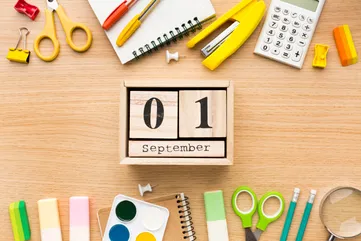Mental Organization
Mental organization is the ability to create and maintain internal systems for categorizing, prioritizing, and retrieving thoughts, ideas, and information without external tools or reminders.
You're not alone
If your teen can't keep track of multiple instructions, loses their train of thought mid-sentence, or seems mentally scattered despite intelligence, you're seeing mental organization challenges. This affects 30-40 percent of teens with ADHD and many neurotypical teens during stressful periods. The teenage brain is reorganizing itself, which temporarily disrupts mental organization systems. With support and strategies, mental clarity improves significantly.
What it looks like day to day
Student
Your teen starts telling you about their day but jumps between topics so randomly you can't follow the thread of any single story.
Parent
You give three simple instructions and your teen immediately asks "Wait, what was the first thing?" having already lost the mental sequence.
Tiny steps to try
- 1
Brain dump practice
Have your teen write everything in their head on paper for 5 minutes daily. Externalizing thoughts reduces mental clutter.
- 2
Category containers
Teach grouping related thoughts. School thoughts, friend thoughts, worry thoughts. Mental filing systems reduce chaos.
- 3
Think aloud modeling
Narrate your mental organization. "First I'll do X, then Y, because Z needs to happen last."
- 4
One thought completion
Practice finishing one complete thought before moving to the next. Build mental discipline gradually.
- 5
Evening mind-clearing
Before bed, list tomorrow's priorities. Clearing mental cache improves next-day organization.
Why mental disorganization creates chaos
When mental organization is weak, your teen's thoughts feel like a browser with 100 tabs open. They can't prioritize, sequence ideas, or remember what they were supposed to do.
Signs of poor mental organization:
• Forgetting assignments that were just discussed
• Starting sentences without knowing where they're going
• Losing track mid-task of what they're doing
• Mixing up sequences and steps
• Feeling mentally "foggy" or cluttered
• Unable to explain their thinking process
This creates academic struggles, social challenges, and constant feeling of being overwhelmed despite actual capability.
Ready to help your teen thrive?
Get personalized 1-on-1 coaching to build better habits and boost grades. Join 10,000+ families who trust Coachbit.
Frequently Asked Questions
Is mental disorganization related to ADHD?
Often but not always. ADHD commonly includes mental organization challenges due to executive function differences. However, anxiety, depression, stress, sleep deprivation, and normal adolescent brain development can also disrupt mental organization. If challenges persist and significantly impact daily life, evaluation might help identify underlying causes and appropriate support.
Can mental organization be improved?
Absolutely. While some people naturally have more organized thinking, everyone can improve with practice and strategies. External organization tools (lists, calendars, systems) support internal organization development. Meditation, adequate sleep, and reduced stress also improve mental clarity. Most teens show significant improvement with consistent strategy use.
Related Terms
Attention Management
Attention management goes beyond basic focus to include strategically allocating mental energy, minimizing distractions, and creating systems that protect deep work time throughout the day.
Cognitive Flexibility
Cognitive flexibility is your teen's ability to switch mental gears, adapt to changes, and see situations from different perspectives without getting stuck.
Executive Function
Executive function is your brain's management system that helps teens plan, focus, remember instructions, and juggle multiple tasks successfully.
Working Memory
Working memory is your teen's mental sticky note that holds information just long enough to use it, like remembering instructions while doing homework or keeping track of their place in a conversation.
Related Articles

3 Ways an Executive Functioning Coach Can Help Your Child
Discover why executive functioning skills are crucial for your child's success. Learn how an executive functioning coach can make a difference
Read article
Finding Order in the Chaos – Setting up Calendars for Kids
Creating a calendar and daily schedule for kids can be beneficial to manage school, homework, extracurriculars and hobbies. Color-coding and time-blocking are helpful tools for kids with ADHD.
Read article
